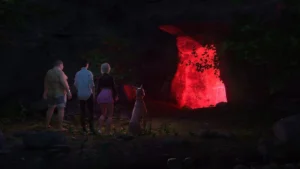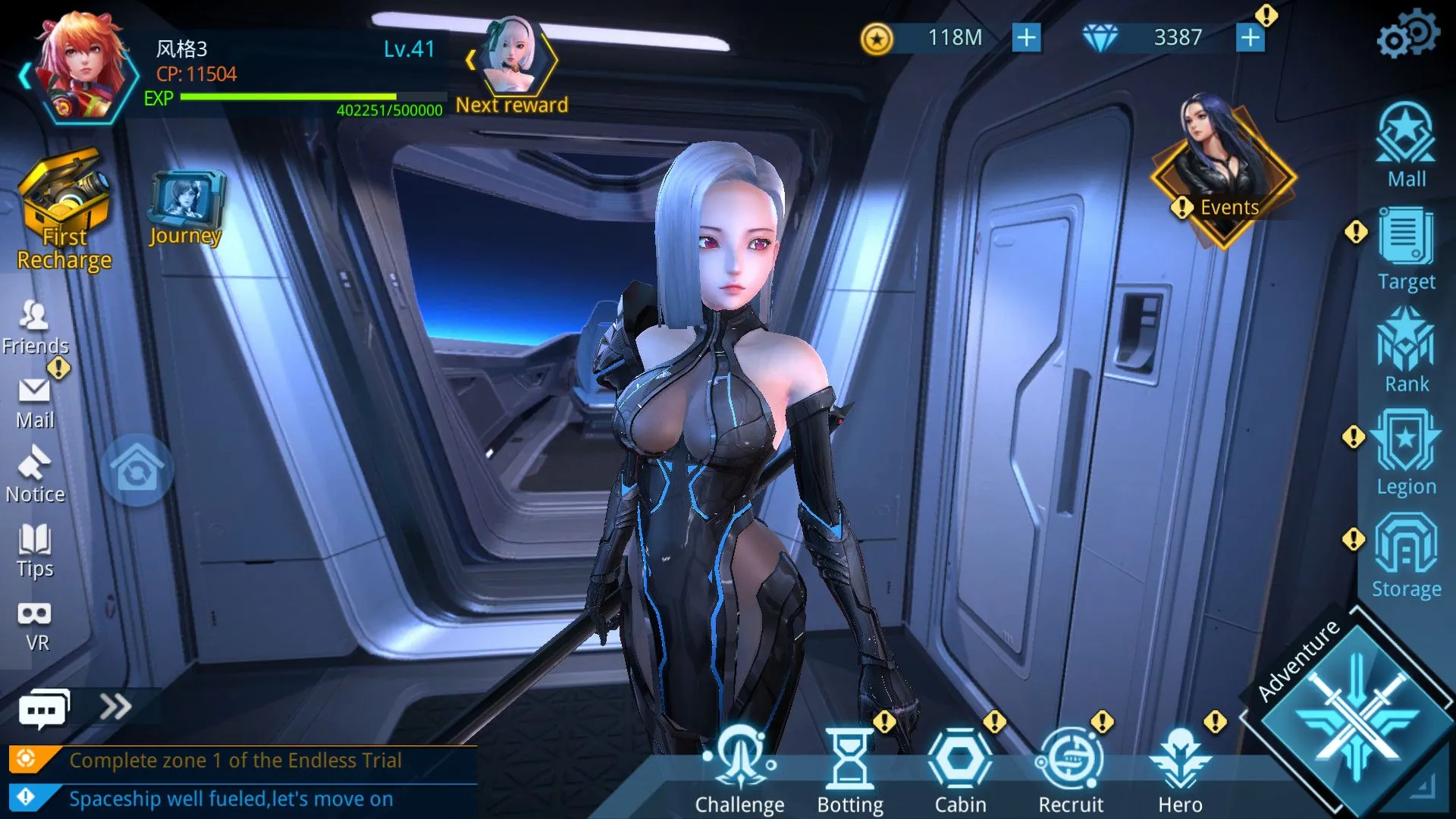
Apocalust
Play Apocalust
Apocalust review
Explore the unique narrative, gameplay, and features of Apocalust
Apocalust is a captivating adult-themed game that blends an intriguing storyline with immersive gameplay. Centered around a young photographer who gains mysterious metaphysical powers from an ancient relic, the game challenges players to navigate a world filled with romance, moral choices, and supernatural elements. This article dives deep into what makes Apocalust a standout experience, from its rich narrative to its visual design and interactive relationships.
Unveiling Apocalust’s Story and Setting
Let me tell you about the first time the Apocalust storyline truly gripped me. I was just a guy with a camera, exploring a crumbling old museum for some cool shots, when I stumbled upon this strange, pulsating relic. One touch, and my whole world—both in-game and as a player—flipped upside down. 🤯 This isn’t just another “get power, save world” tale. It’s a deeply personal journey that asks what happens when an ordinary person is handed the keys to a metaphysical kingdom, and whether they’ll use them to build a throne or a refuge.
The Apocalust narrative impact hits you immediately. You aren’t a pre-destined hero; you’re a photographer thrown into the deep end, and the game never lets you forget that. Your newfound abilities aren’t just tools; they’re temptations. This foundation makes every decision you make feel weighted and real, setting the stage for one of the most compelling adventures I’ve experienced.
Who is the Protagonist and What Powers Do They Gain?
You step into the worn-out shoes of Leo, a freelance photographer just trying to make a living and document the decay of the world around him. He’s the Apocalust protagonist, and his relatability is the game’s secret weapon. 🎞️ He’s not a soldier or a spy; he’s an artist, which makes his transformation all the more shocking and engaging.
The moment he touches the relic, his life is irrevocably changed. He gains a suite of incredible Apocalust powers that fundamentally alter how he interacts with reality. These aren’t just about throwing bigger fireballs.
- Soul-Sight: This was my favorite. You can peer beyond the physical veil, seeing the emotional echoes of a place or the hidden desires of people. It turns every conversation into a potential puzzle.
- Memory Weaving: You can influence and even reshape the memories of others. This is where the Apocalust moral choices often begin. Do you soothe a traumatized survivor by giving them a happy memory, or do you extract a painful one to gain crucial information? 😈
- Empathic Projection: You can make others feel what you feel—or what you want them to feel. Imagine calming a raging beast with a wave of peace or causing a squad of enemies to turn on each other with a burst of paranoia. The tactical possibilities are endless.
Mastering these Apocalust powers is a core part of the gameplay loop. You start off clumsy, the energy flickering unpredictably, which perfectly mirrors Leo’s own confusion and fear. As you grow, so does your control, making you feel truly powerful by the end.
The Dystopian World and Visual Atmosphere
The Apocalust game setting is a character in itself. This isn’t your standard, grey-brown post-apocalypse. The Apocalust dystopian world is hauntingly beautiful in its decay. We’re talking about cityscapes where vines and neon signs battle for dominance, and vast, silent deserts where the only sound is the whisper of shifting sand over old highways. 🌵
I remember exploring the ruins of a once-grand library, and the atmosphere was so thick you could almost smell the old paper and dust. Sunlight streamed through a collapsed roof, illuminating floating motes of dust and the skeletal remains of bookshelves. It’s moments like these that the Apocalust dystopian world truly shines, offering a poignant mix of melancholy and strange serenity.
The visual design does an incredible job of supporting the Apocalust storyline. The world feels lived-in and lost. You’ll find abandoned campsites with stories told through scattered belongings, and derelict corporations that hint at the hubris that led to the fall. This attention to environmental storytelling means you’re always discovering new layers to the narrative, even when you’re just wandering off the beaten path. 🗺️
Moral Choices and Their Impact on the Game
This is where the Apocalust narrative impact separates it from the pack. The game doesn’t present you with simple “good” or “evil” buttons. Instead, you’re faced with nuanced Apocalust moral choices that live in murky grey areas. The game constantly asks: does the end justify the means when you have the power to reshape reality itself?
Pro Tip: Your choices aren’t just about big story moments. How you use your powers in everyday interactions—like calming a frightened child or intimidating a stubborn guard—subtly shifts your alignment and how characters perceive you.
For instance, early on, I encountered a community leader who was hoarding supplies out of fear. I could have used my powers to forcibly make him generous (the “quick” good), expose his secret and let the mob deal with him (the chaotic neutral), or patiently work through a series of quests to earn his trust and help him overcome his fear (the “true” good). I chose the quick fix, and while it solved the immediate problem, it created a passive, dependent community that came back to haunt me later. That’s the genius of the Apocalust storyline—consequences have a long memory.
To give you a clearer picture of how these decisions ripple through your playthrough, here’s a breakdown:
| Your Moral Choice | Impact on Storyline | Impact on Relationships |
|---|---|---|
| Using Memory Weaving to erase a character’s trauma. | Creates a more stable, but less resilient, community. May lock you out of quests that require their “hardened” personality. | The character becomes deeply loyal but dependent. Others may see you as a benevolent manipulator. |
| Using Empathic Projection to incite fear and dominate a negotiation. | Unlocks a ruthless, efficient path through obstacles but increases overall world hostility and paranoia. | Followers motivated by fear are more likely to betray you if a stronger power appears. More aggressive factions may respect you. |
| Refusing to use powers, solving problems through dialogue and persuasion. | The slowest path, but leads to the most organically stable and self-sufficient world state. Unlocks unique diplomatic endings. | Earn genuine trust and respect. Characters see you as an equal and a leader, not a god or a tyrant. |
😊 😠 😐
Navigating these Apocalust moral choices is the heart of the experience. It forces you to constantly evaluate your own ethics. Are you a guardian using your gifts to heal, a pragmatist using them to control, or something in between? The game never judges you, but it always remembers.
The way the Apocalust storyline weaves together a relatable protagonist, awe-inspiring powers, a breathtakingly grim world, and truly consequential decisions is nothing short of masterful. The Apocalust narrative impact lingers long after you put the controller down, making you ponder what you would have done in Leo’s place. It’s a journey that is as much about exploring the ruins of a civilization as it is about exploring the landscape of your own morality.
Apocalust offers a richly layered experience that combines a compelling narrative, engaging gameplay, and tasteful mature content. Its unique blend of metaphysical powers, moral dilemmas, and relationship dynamics creates a memorable journey for players seeking an immersive adult adventure. Whether you appreciate deep storytelling or high-quality animations, Apocalust delivers on multiple fronts. Dive into this captivating world and explore the choices that shape your destiny.




















